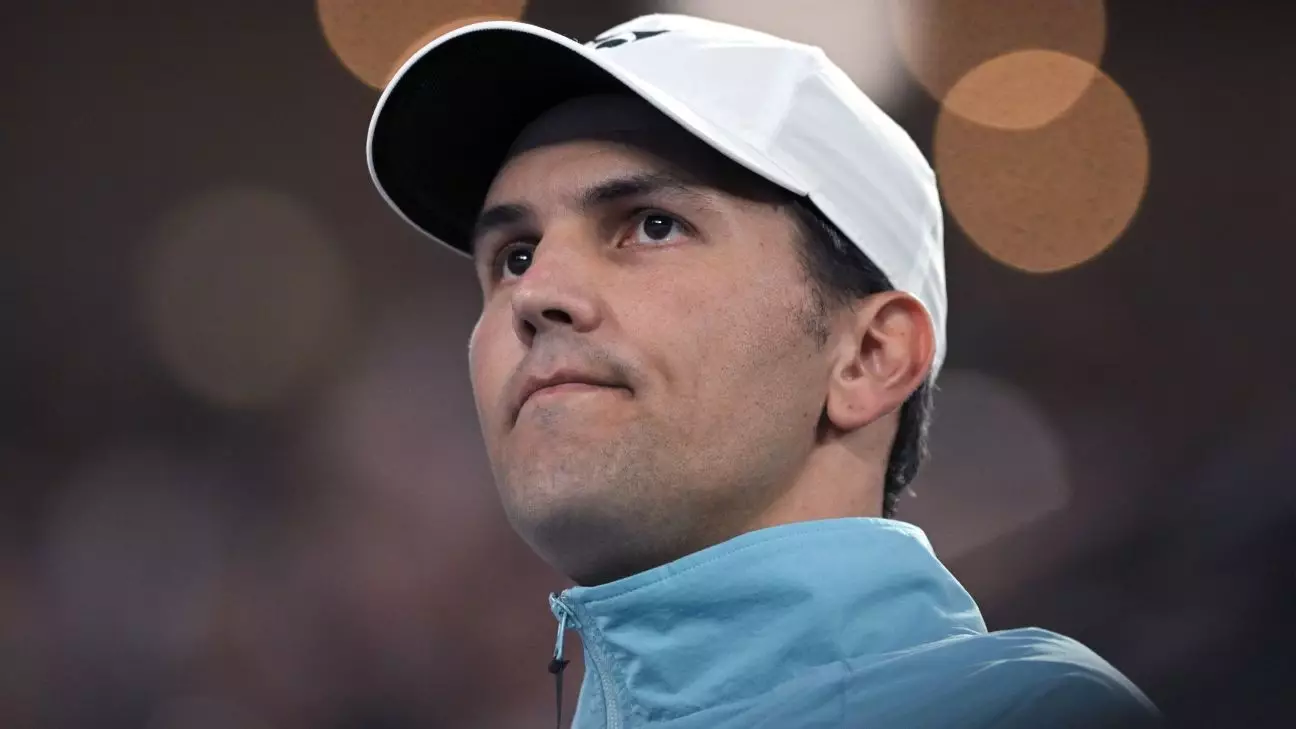Recent developments in professional tennis have brought the spotlight to Elena Rybakina’s coaching situation, revolving primarily around the suspension of her former coach, Stefano Vukov. The WTA Tour confirmed on Tuesday that Vukov’s suspension, which was initially provisional, remains effectively in place following an investigation into potential violations of the WTA’s code of conduct. Despite Vukov’s insistence on his innocence, the governing body has chosen to retain the suspension, emphasizing the importance of confidentiality regarding the investigation’s details.
This situation is not merely a contractual dispute; it raises significant questions about the welfare of players and the standards that coaches must uphold. The WTA has expressed its commitment to fair and objective handling of such matters, reflecting an ongoing effort in the realm of sports to ensure integrity and accountability. However, the lack of transparency in the findings leaves room for speculation, which could affect the image and career of both Vukov and Rybakina.
Elena Rybakina, the reigning Wimbledon champion, entered the Australian Open with mixed emotions regarding her coaching staff. Publicly, she stood by Vukov, stating, “He never mistreated me,” a sentiment that contradicts the reasons behind his suspension. Her vocal support suggests a strong personal relationship built over years of collaboration, complicating the perception of Vukov within the broader tennis community.
In the backdrop of these allegations, Rybakina’s coaching choices appear to be in flux. Following her split with Vukov just before the US Open last year, she announced a partnership with Goran Ivanisevic, the 2001 Wimbledon titleholder. However, in a twist of fate, she reversed course, indicating she might integrate Vukov back into her team, despite the looming suspension and his ineligibility to access specific tournament spaces. This indecision and the fluctuating dynamics around her coaching lineup paint a picture of uncertainty that could affect her performance on the court.
The turbulence surrounding her coaching situation also raises pertinent questions about Rybakina’s focus and performance. Tennis is a demanding sport where mental stability and confidence can significantly influence results. With the disruption caused by the ongoing suspension and the potential impact of her coaching changes, one wonders how Rybakina can maintain her competitive edge.
Following a fourth-round exit at the Australian Open, Ivanisevic’s decision to step away from coaching Rybakina may signal broader implications for her career trajectory. The lack of consistency in her coaching setup might not only hinder her preparation for future tournaments but could also contribute to a decline in her ranking and overall performance in an increasingly competitive field.
As the tennis season progresses, the resolution of Vukov’s suspension and Rybakina’s forthcoming coaching decisions will be critical. The WTA’s focus on integrity emphasizes a shift towards a more accountable framework for player-coach relationships, which ultimately aims to enhance the sport’s reputation. Rybakina’s strategic choices in navigating this turbulent phase will likely shape her career in the months to come. It remains crucial for her to find stability within her team, allowing her to channel her energy towards her game rather than the controversies off the court. Only time will tell how these dynamics will unfold and influence Rybakina’s future in professional tennis.


Leave a Reply